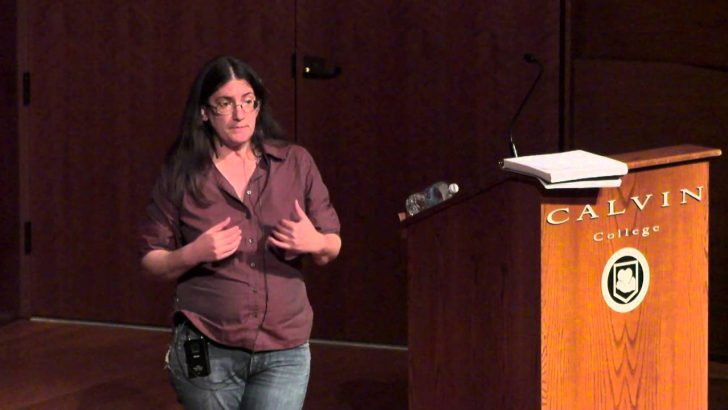Among the most consistently interesting religious blogs over recent years have been those on the Catholic channel of patheos.com, with Eve Tushnet’s being a fine example of this. Tushnet, who converted to Catholicism in 1998, describes herself as an “openly lesbian and celibate Catholic”, and writes often on themes of religion of sexuality.
In a recent post, she moves from a discussion of Shakespeare to a reflection on Jerusalem, a 600,000-word novel by English writer Alan Moore on 1,000 years of his native Northampton.
Free will
Observing that the book insists time is “more or less fake”, with everything somehow preserved in eternity even when superficially destroyed, she comments, “on one level this vision is pretty attractive to me and there are ways in which I do believe it. I do think God holds all the moments of our lives in his attention, so that nothing is wasted.
“The Mass, certainly, is the penetration of time by something beyond time: every Mass is the sacrifice on Calvary.”
However, she says, the implication of this in the text is that if time is unreal then so is free will. Moore, she notes, sees this as consoling.
“I disagree, my friend, and I suspect a lot of people in recovery will agree with me,” she counters, continuing, “having had a full cup of bondage of the will I would prefer to order a round of something else. I would like the right to my guilt and therefore my repentance.
“I would like to let myself be rescued: Fiat voluntas tua, the story is actually sort of horrible if she doesn’t choose to say that.”
Pointing out she would like to be changed, even if loss is part of the equation, she says: “Purgatory is radical and real change, in which things we thought we could keep will be lost. Maybe transformed, and maybe once we see the transformation we will not count it a loss, but we would count it loss if we could see it with the unhallowed eyes we have today.”
Another frequently intriguing blog is ‘All Along The Watchtower’ at jessicahof.wordpress.com, where the pseudonymous ‘Chalcedon451’ last week, for instance, in a post about a curious but unsubstantiated report from the Vatican, warns against believing uncritically stories that suggest the Pope is committed to a ‘spirit of Vatican II’ agenda.
“We are told by Leonardo Boff that the Pope is on his side and soon intends to give permission to the Brazilian bishops to have married priests,” he says. “Commentators who would give no credence to Boff on anything else, report his words as though they are Gospel truth, not, of course, because they have suddenly decided that Boff is a reliable source, but because what he says fits with their picture of Francis.”
Responding to a comment on this post taking issue with his observation that many of those attacking the Pontiff had their knives out for him from the start, he maintains that many did.
“What concerns me is that one side of the picture and the argument are presented by such people, and they dismiss, too often, those who disagree with them as though their motives are simply self-seeking,” he says, continuing, “this concerns me.
“The Church has always had places for quite a wide variety of beliefs, and the difficulty with the ‘culture wars’ template is that it puts a halo around one’s own views and a pair of horns on those who hold other views. Its effect on our politics has been, to coin a word, deplorable, and I see it happening in the Church.
“He is the Pope,” he continues, and unless one subscribes to the view that the vast majority of the bishops and cardinals are some kind of scoundrel, then it seems to me unwise to go beyond where most of them are.”


 Greg Daly
Greg Daly Eve Tushnet
Eve Tushnet 